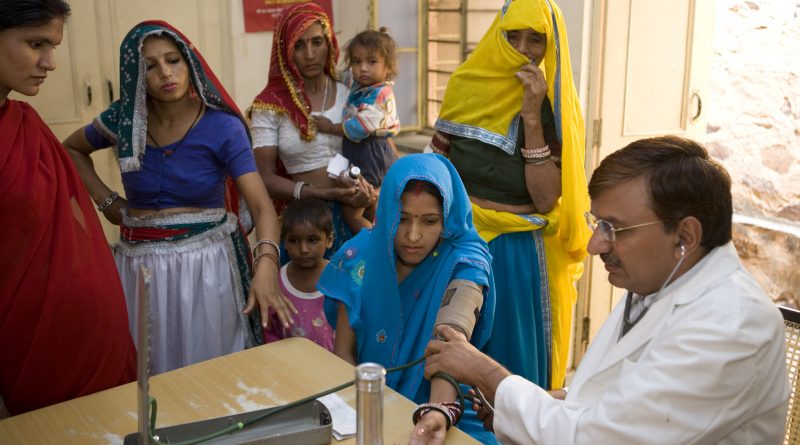Transforming Health Services
Amidst the mounting concerns over some of the provisions of the National Medical Commission Bill, the Union Health Ministry claims that NMC will have a representative, inclusive character respecting the federal structure of Indian polity with doctors having an overriding say in enhancing quality and quantity of medical education, besides ensuring accessibility and affordability of healthcare facilities in both urban and rural areas paving the way for universal health coverage….
Amresh K Tiwary
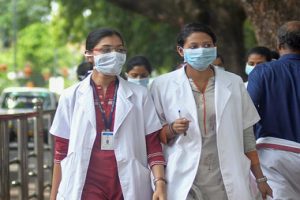
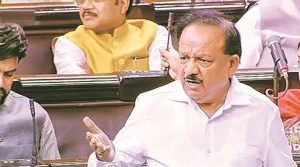
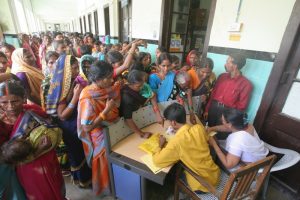
The much-awaited and debated National Medical Commission Act has finally seen the light of the day. It is described as a huge and visionary reform in the medical education sector by the Narendra Modi Government. The Government claims that Act is a progressive legislation which will reduce the burden on students, ensure probity in medical education, bring down costs of medical education, simplify procedures, help to enhance the number of medical seats in India, ensure quality education, and provide wider access to people for quality healthcare.
What is MNC Bill 2019?
The NMC Bill proposes to repeal the Indian Medical Council Act, 1956 and replace the Medical Council of India (MCI), which was dissolved in 2010 following corruption charges against its president Ketan Desai by the Central Bureau of Investigation (CBI). As per the Bill, a National Medical Commission will be set up in place of MCI that will have responsibilities such as approving and assessing medical colleges, conducting common MBBS entrance and exit examinations and regulating medical course fees. The Bill aims to provide for a medical education system that improves access to quality and affordable medical education.
Why Doctors are against the Bill
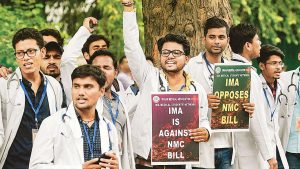
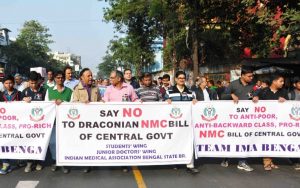
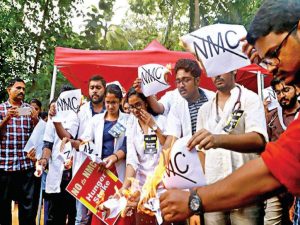
According to Vinay Aggarwal, National President Past, IMA, the Section 32 of the NMC Bill provides for licensing of 3.5 lakhs non-medical persons or Community Health Providers to practise modern medicine. According to the Bill, the Commission may grant limited licence to practice medicine at mid-level such as Community Health Provider to such person connected with modern scientific medical profession who qualifies such criteria as may be specified by the regulations.
Earlier, there was a proposal of a bridge course clearing which alternative medicine doctors could practise modern medicine. The provision was majorly opposed by doctors when the Bill was proposed. The government made changes in the bill for the provision but proposed similar idea of Community Health Providers to help tackle the disease burden in rural areas.
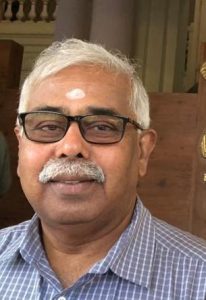 Dr R V Ashokan, Secretary General, IMA, said, “According to the Bill, the Community Health Provider may prescribe specified medicine independently, only in primary and preventive healthcare, but in cases other than primary and preventive healthcare, he may prescribe medicine only under the supervision of medical practitioners registered under sub-section (1) of section 32. The term Community Health Provider has been vaguely defined to allow anyone connected with modern medicine to get registered in NMC and be licensed to practise modern medicine,”
Dr R V Ashokan, Secretary General, IMA, said, “According to the Bill, the Community Health Provider may prescribe specified medicine independently, only in primary and preventive healthcare, but in cases other than primary and preventive healthcare, he may prescribe medicine only under the supervision of medical practitioners registered under sub-section (1) of section 32. The term Community Health Provider has been vaguely defined to allow anyone connected with modern medicine to get registered in NMC and be licensed to practise modern medicine,”
Dr Ashokan added, “This means persons without medical background are becoming eligible to practice modern medicine and prescribe independently. This law legalizes quackery. This provision and the other controversial provisions can never be accepted by the medical community of the country.
Medical student fraternity has completely rejected NEXT in its present format. Merit should be the determining factor in securing a PG seat and the current NEET-PG should not be scrapped,” said the All India Institute of Medical Sciences (AIIMS) Resident Doctors Association (RDA), the Federation of Resident Doctors Association (FORDA) and the United-RDA in a joint statement opposing the NMC Bill in its current form.”
What govt claims?
It recommended that independent regulators selected through a transparent process should replace the elected regulators. The NMC seeks to achieve this, by having eminent medical personalities who will be appointed for only one term of four years. They will not be eligible for any further extension. To ensure probity and integrity of the highest order, they will have to declare their assets at the time of being appointed and again while demitting office.
The members will also have to declare their professional and commercial engagement or involvement which will be published on the website of the Commission. It has been further provided that chairperson/member on ceasing to hold office will not accept for a period of two years any employment in any capacity in a private medical institution whose matter has been dealt with them either directly or indirectly.
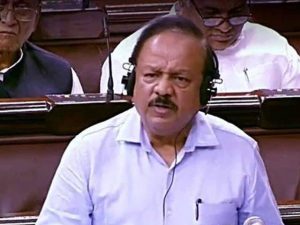 Dr Harsh Vardhan, Union Minister of Health & Family Welfare, said, “National Medical Commission Act 2019 passed by both Houses of Parliament is historic and path-breaking. It will prove to be a milestone in the years to come. It is a game changing reform of transformational nature. I am sure that under the NMC, medical education in the country will attain its zenith in the years to come. Work on this Bill had commenced almost five years ago when an expert group headed by Professor Ranjit Roy Choudhury was set up to study the problems being faced in the medical education sector. This expert group found that the Medical Council of India (MCI) had failed in almost all spheres and had become a highly corrupt and ineffective body.”
Dr Harsh Vardhan, Union Minister of Health & Family Welfare, said, “National Medical Commission Act 2019 passed by both Houses of Parliament is historic and path-breaking. It will prove to be a milestone in the years to come. It is a game changing reform of transformational nature. I am sure that under the NMC, medical education in the country will attain its zenith in the years to come. Work on this Bill had commenced almost five years ago when an expert group headed by Professor Ranjit Roy Choudhury was set up to study the problems being faced in the medical education sector. This expert group found that the Medical Council of India (MCI) had failed in almost all spheres and had become a highly corrupt and ineffective body.”
Overarching body
NMC will be an overarching body, which will frame policies and co-ordinate the activities of four Autonomous Boards. These Boards will look after the work of UG and PG education, Medical Assessment and Rating; and Ethics & Medical Registration. The purpose of having these four independent Boards is to ensure separation of functions between them.
Student friendly
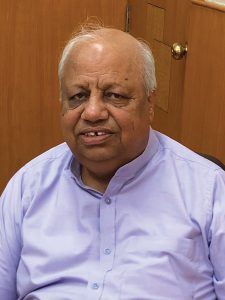
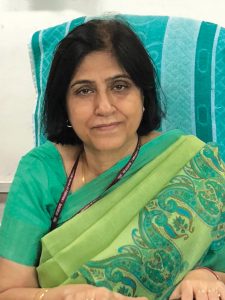 According to Dr A K Aggarwal, Medical Advisor, Innovation, Apollo Group of Hospital and Ex President, Delhi Medical Council, the NMC Act is a student friendly initiative. One of the mandates of NMC is to look at the cost of medical education.It also provides for a common entrance examination for MBBS (NEET) along with common counseling for all medical institutions in the country. This provision will prevent seat blocking in parallel counseling processes and will eliminate the need for students to approach multiple colleges and take part in multiple counseling processes for admission. This will save students and their families from unnecessary physical and financial trauma.
According to Dr A K Aggarwal, Medical Advisor, Innovation, Apollo Group of Hospital and Ex President, Delhi Medical Council, the NMC Act is a student friendly initiative. One of the mandates of NMC is to look at the cost of medical education.It also provides for a common entrance examination for MBBS (NEET) along with common counseling for all medical institutions in the country. This provision will prevent seat blocking in parallel counseling processes and will eliminate the need for students to approach multiple colleges and take part in multiple counseling processes for admission. This will save students and their families from unnecessary physical and financial trauma.
NEXT
Dr Suneela Garg, HOD, Department Community Medicine, Maulana Azad Medical College, New Delhi, said, “Even in the current system, every student has to appear for a final year examination. Under the NMC Act, this final year examination has been converted into a nationwide exit test called NEXT. This single examination will grant i) a license to practice medicine, ii) an MBBS degree, and iii) entrance to postgraduate courses. Students will be able to concentrate on internship instead of spending all their time preparing for entry into PG courses and thus the burden on students will be greatly reduced. The same examination will also serve as licentiate exam for foreign graduates”. There is a provision for common counseling for entrance to PG courses also. Students will be able to get admission to seats in all medical colleges and to Institutes of National Importance like AIIMS, PGI Chandigarh and JIPMER through a single counseling process. The Act does not impose any restriction on the number of attempts at NEXT examination.
Fees Regulation


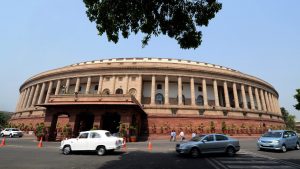
A singularly outstanding feature of the NMC Act is that it provides for regulation of fees and all other charges in 50% seats in private colleges as well as deemed to be universities. “This is a welcome step in the direction of regulation of the cost of medical education”, stated Dr Harsh Vardhan. He added that there was no provision to regulate fees in the IMC Act 1956. As a result, states had to resort to signing of MOUs with medical colleges at the time of granting Essentiality Certificate and thereby gain a handle to regulate fees of state quota seats. In view of the lack of a regulatory mechanism, the Supreme Court had to pass orders for setting up of fees committees in each state to be chaired by retired High Court judges. This committee decided only the fees and not the other charges levied by private colleges. Deemed to be universities refused to submit before this committee and remained virtuallyunregulated, the Health Minister noted.
Nearly 50% of the total MBBS seats in the country are in government colleges, which have nominal fees. Of the remaining seats, 50% would be regulated by NMC. This means that almost 75% of total seats in the country would be available at reasonable fees. It must be stressed again at this point that not only fees, but fees and all other charges are being regulated.
Dr. Harsh Vardhan said that “The need to regulate fees varies from state to state depending on the number of private colleges already available. In the spirit of a vibrant and healthy federal polity, instead of the Centre abrogating the power to regulate fees for 100% of the seats available in the private sector, under this progressive Act, states have the power to take a view regarding the extent to which fee regulation needs to take place. They would now have the freedom to sign MOUs with medical colleges on the basis of mutual understanding as before. In addition, since the NMC Act has a provision for fees regulation, they will have the authority to come up with state amendments regarding regulation of fees for the remaining 50% seats”.
Community Health Providers
Elaborating on the provisions on Community Health Providers and debunking apprehensions being raised by critics of the NMC Act, Dr Harsh Vardhan stated “We are looking at universal health coverage and more importantly, universal screening of our population for non-communicable diseases in the years to come. This requires a large number of health professionals. Doctors are a scarce resource in our country and need to be optimally utilized. They are indispensable for secondary and tertiary care; the only area where other health professionals can supplement them is preventive and primary healthcare”.
The Union Health Minister explained that as part of a pragmatic and forward looking measure in the NMC Act, in remote areas where doctors are not available, there will now be a health professional who can counsel the population, provide early warnings, treat elementary ailments, and provide early referral to a higher facility. The utility of such mid-level health providers has been confirmed by the WHO after studying their impact on healthcare in developed and developing countries. Even developed countries like USA, Canada and UK have mid-level providers like nurse practitioners, he added.
“Our rural population deserves the best healthcare facilities. We have a system of community health centres and primary health centres in rural areas based on population norms. This system is continuing and efforts are being made to fill up vacancies at such centres. Flexibility has been provided under NHM to pay higher salaries to doctors and some states are even following a policy of “you quote, we pay” to attract doctors. Facilities at rural health centres are being improved continuously under NHM”.
Dr Harsh Vardhan added, “In the above background, a provision has been made in the NMC Act to register some Community Health Providers (CHPs) who shall be modern medicine professionals; they shall not be dealing with any alternative system of medicine. Also, they will have limited powers for providing primary and preventive healthcare at the mid-level”. He further stated that the eminent doctors in NMC shall decide their qualifications through regulations which shall be finalized after extensive public consultation and debate.
Dispelling rumours, fears and apprehensions about this provision giving a fillip to quackery in the country, he stated that: “A false impression is being created that the provision for CHPs has been made to legalize quacks. Nothing can be farther from the truth. On the contrary, the punishment for quackery has been enhanced up to one year imprisonment and up to Rs 5 lakh fine. The so-called quacks in the country do not possess any qualifications and would not be able to meet the conditions that will be set by NMC for becoming a CHP”, Dr Harsh Vardhan explained.
NMC members
Elaborating further on some of the concerns voiced regarding the NMC Act, Dr. Harsh Vardhan stated that “There are some apprehensions about NMC being dominated by central government nominees. This is not true. There will be 10 vice chancellors of state health universities and 9 elected members of State Medical Councils in the NMC. Thus 19 out of 33 members, which is more than half of the total strength, would be from the states and only a minority of members will be appointed by the central government thereby ensuring that the NMC is representative, inclusive and respecting the federal structure of Indian polity”.
Govt claims about NMC Bill
1. Clause 32: Limited License to practice at Mid-level as Community Health Provider
India has a doctor-population ratio of 1:1456 as compared with the WHO standards of 1:1000. In addition, there is a huge skew in the distribution of doctors working in the urban and rural areas with the urban to rural doctor density ratio being 3.8:1. Consequently, most of our rural and poor population is denied good quality care leaving them in the clutches of quacks. It is worth noting that at present 57.3% of personnel currently practicing allopathic medicine do not have a medical qualification.
The ambitious Ayushman Bharat initiative announced by GoI in this year’s Budget Speech needs 1,50,000 mid-level providers within the next 3-5 years to provide comprehensive primary and preventive care. It will take 7-8 years to ramp up the supply of doctors, therefore, in the interim we have no option but to rely upon a cadre of specially trained mid-level providers who can lead the Health and Wellness Centres.
There are international examples of Health Systems permitting such Community Health Workers. Countries such as Thailand, United Kingdom, China, and even New York have permitted Community Health Workers/Nurse Practitioners into mainstream health services, with improved health outcomes. Since we have shortage of doctors and specialists, the task shifting to mid-level providers will relieve the overburdened specialists. This is merely an enabling provision to grant limited licence only in primary and preventive healthcare to practice medicine at mid-level to such persons, who qualify such criteria as may be specified by regulations which will have an overwhelming representation of doctors. Chhattisgarh and Assam have experimented with the Community Health Workers. As per independent evaluations (carried out by Harvard School of Public Health), they have performed very well and there is no ground of concern if the quality of personnel is regulated tightly.
2. Clause 15: NEXT Exam
Medical Education (ME) is a specialized area with high focus on technical skill sets. A common final year undergraduate examination (NEXT) determines common standards of knowledge and skills for doctors on a nation-wide basis.
An enabling provision has been made to ensure common standards. Regulations for operationalizing the NEXT would be made in due course keeping in mind importance of both theoretical as well as clinical skill sets required at the level of UG. Composition of NMC includes 75% doctors representing Central and states institutions/councils and health universities. Such a composition of NMC will ensure that due weightage to theoretical as well as clinical skill sets is adhered to. There is a 3-year window before NEXT becomes operational, leaving ample scope for detailed negotiations on the contours of the exam.
3. Clause 10(1) (i): Fee regulation
IMC Act, 1956 has no provision for regulation of fees. As a result, some states regulate the fees of some seats in private colleges through MoUs signed with college managements. In addition, the Supreme Court has set up committees chaired by retired High Court Judges to fix fees in private colleges as an interim measure. Deemed to be universities claim that they are not covered by these committees.
Nearly 50% of the total MBBS seats in the country are in government colleges, which have nominal fees. Of the remaining seats, 50% would be regulated by NMC. This means that almost 75% of total seats in the country would be available at reasonable fees. In the spirit of federalism, the state governments would still have the liberty to decide fees for remaining seats in private medical colleges on the basis of individual MOUs signed with colleges on the basis of mutual agreement.
States also have been providing scholarships on the basis of merit cum means and would normally continue to do so in order to make medical education affordable to all students. We need to balance the interests of the poor but meritorious students and the promoters of the private medical colleges in order to expand the number of seats on offer. It is not correct to assume that colleges would be free to arbitrarily raise the fees for unregulated seats. The transparency provided by NEXT results would lead to regulation of fees through market forces. Colleges would have to provide quality of education commensurate to the fees charged by them, otherwise there would be no takers for their management quota seats.
Rating would be provided by MARB for medical institutions based on the standard of education/training. This will serve to regulate fee through market forces.
Any affirmative action has to meet the test of reasonability. India has a large middle class population. The government of the day is duty bound to create infrastructure for all segments of society.
While the government solicits private investment in the medical education sector and want private medical colleges to be financially viable, this government has not shied away from its responsibility to create more seats in the government sector. It has invested more than Rs 10,000 crore in creating government seats in the past five years, and is also setting up 21 new AIIMS at a cost of over Rs 30,000 crore to boost the medical education sector. This trend of creating government seats will continue in future.
There is no question of NMC Bill making medical education a preserve of the rich. On the contrary, it is common knowledge that before the reforms of NEET and common counseling were introduced by our government, rich students who could afford to pay huge and unrecorded capitation fees were able to secure admission to private medical colleges. The reforms have eliminated the role of black money in medical education and the NMC Bill will provide statutory force to the reforms which have been carried out.
Another bogey which is being raised is that merit will be given a go by in the proposed dispensation. Nothing could be further from the truth. The earlier provision was that any student who obtains 50% marks at class 12 level could gain admission to MBBS courses. Colleges negotiated with students and conducted their own admission tests in a totally non-transparent manner. As a result, many undeserving students got admission. Now only NEET qualified students can get admission, which ensures that merit prevails in admissions.

